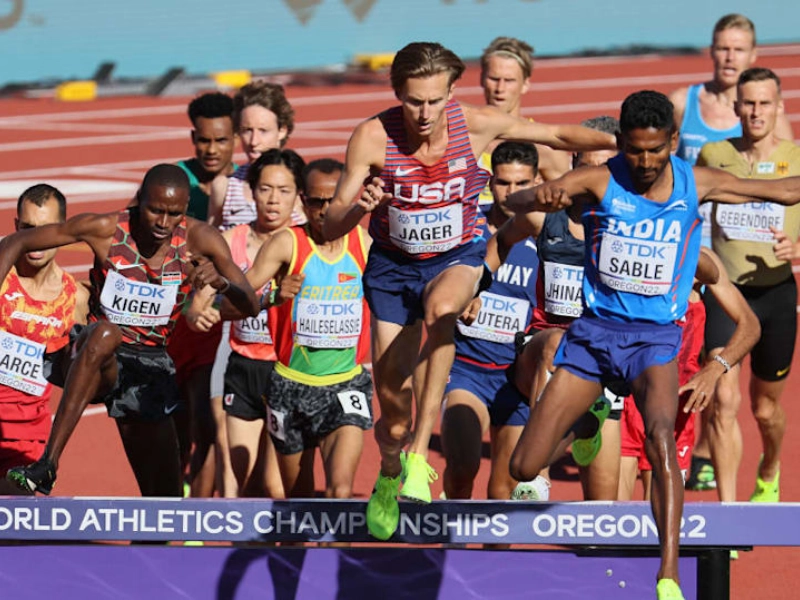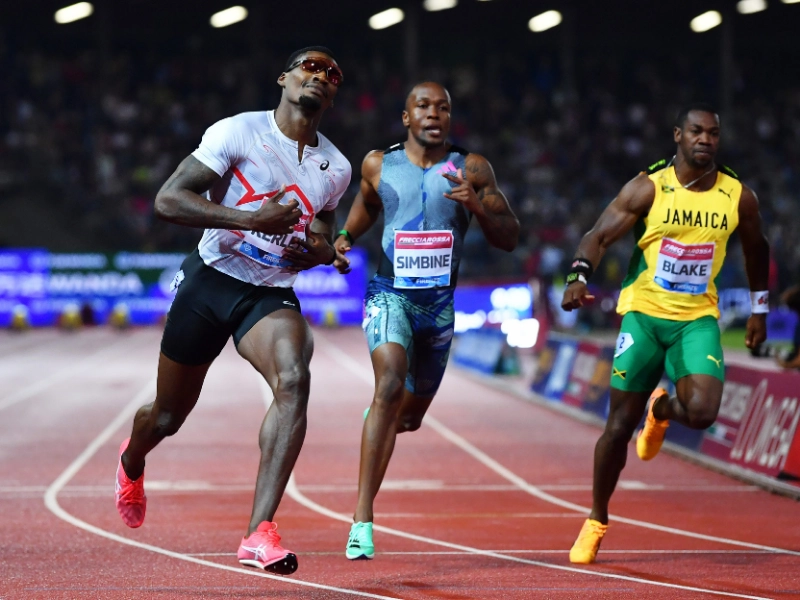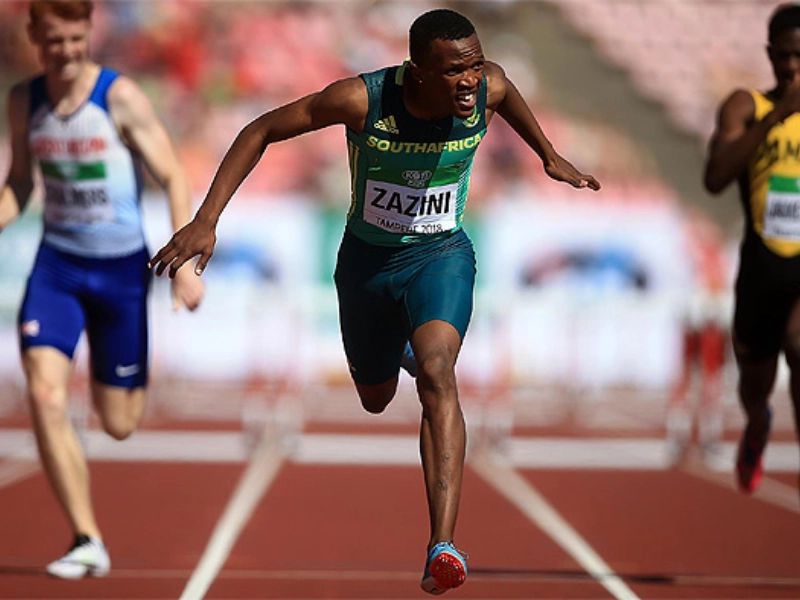1. Climate Change's Effect on Weather Patterns Significant changes in weather patterns all throughout the world have resulted from climate change. Athletes and event planners for athletic contests are finding ever-changing weather that can compromise safety or performance. Extreme heat, plenty of rain, and changing seasons can all throw off plans for events and training. Summer contests could have dangerously hot temperatures, for example, whereas winter tournaments might have unseasonably warm circumstances. These developments not only test athletes but also provide hazards that organizers have to carefully control to guarantee the security of attendees and competitors alike.

 3. Revised Training ProgramsAthletes' training schedules are being changed by climate change. Many sportsmen find it difficult to keep regular training plans in view of erratic weather. For example, storms or excessive rain can cause outdoor training sessions to be called off, therefore creating voids in preparedness. Athletes might have to look for indoor facilities, therefore restricting their access to particular training grounds. Moreover, the necessity of adjusting to severe weather can cause greater wear and strain on athletes' bodies, hence maybe leading to injuries. To better equip athletes for different settings, coaches and trainers are now emphasizing including resilience and flexibility in training courses.
3. Revised Training ProgramsAthletes' training schedules are being changed by climate change. Many sportsmen find it difficult to keep regular training plans in view of erratic weather. For example, storms or excessive rain can cause outdoor training sessions to be called off, therefore creating voids in preparedness. Athletes might have to look for indoor facilities, therefore restricting their access to particular training grounds. Moreover, the necessity of adjusting to severe weather can cause greater wear and strain on athletes' bodies, hence maybe leading to injuries. To better equip athletes for different settings, coaches and trainers are now emphasizing including resilience and flexibility in training courses.
 4. Modifications to Event PlanningClimate change is posing scheduling issues for athletic events more and more. Events could have to be moved or postponed to escape bad weather. To reduce heat exposure, marathons and other long-distance races, for instance, are sometimes rescheduled to early in the day. To provide the best conditions for competitors, some competitions are even relocating to other sites or seasons completely. Athletes are affected; equally affected are supporters, sponsors, and local businesses depending on these events. A crucial component of event planning is the growing necessity of adaptability in scheduling.
4. Modifications to Event PlanningClimate change is posing scheduling issues for athletic events more and more. Events could have to be moved or postponed to escape bad weather. To reduce heat exposure, marathons and other long-distance races, for instance, are sometimes rescheduled to early in the day. To provide the best conditions for competitors, some competitions are even relocating to other sites or seasons completely. Athletes are affected; equally affected are supporters, sponsors, and local businesses depending on these events. A crucial component of event planning is the growing necessity of adaptability in scheduling.
 5. Athletics' Environmental SustainabilityGreater sustainability in sports events is pushed for as knowledge of climate change rises. Reducing trash, adopting renewable energy sources, and supporting sustainable mobility choices for fans and athletes are just a few of the environmentally responsible habits many companies are increasingly giving top priority. These projects seek to reduce event carbon footprints and raise participant and fan knowledge of climate change. Athletics events can set a model by including sustainability in their activities and inspire more general society toward environmental responsibility.
5. Athletics' Environmental SustainabilityGreater sustainability in sports events is pushed for as knowledge of climate change rises. Reducing trash, adopting renewable energy sources, and supporting sustainable mobility choices for fans and athletes are just a few of the environmentally responsible habits many companies are increasingly giving top priority. These projects seek to reduce event carbon footprints and raise participant and fan knowledge of climate change. Athletics events can set a model by including sustainability in their activities and inspire more general society toward environmental responsibility.
 6. The Function of TechnologyTechnology is helping to solve the difficulties presented by climate change in sports more and more importantly. Modern tools for advanced weather forecasts let planners foresee and get ready for unfavorable conditions, so guaranteeing the spectator and athlete safety. Wearable technology also lets athletes track their physiological reactions to heat and other environmental variables, therefore enabling real-time training and competition corrections. Athletes' performance and safety are being improved by equipment design innovations, including moisture-wicking textiles and cooling gear, which also assist them in managing shifting conditions.
6. The Function of TechnologyTechnology is helping to solve the difficulties presented by climate change in sports more and more importantly. Modern tools for advanced weather forecasts let planners foresee and get ready for unfavorable conditions, so guaranteeing the spectator and athlete safety. Wearable technology also lets athletes track their physiological reactions to heat and other environmental variables, therefore enabling real-time training and competition corrections. Athletes' performance and safety are being improved by equipment design innovations, including moisture-wicking textiles and cooling gear, which also assist them in managing shifting conditions.
 7. Psychological IssuesClimate change's effects on sports events go beyond the physical obstacles to include athletes' mental well-being. Underlying erratic situations, the pressure to perform can cause tension and worry. The necessity of athletes to react fast to changing surroundings may overwhelm them and influence their concentration and general performance. With sports teams and coaches realizing they must provide tools for athletes to control stress and keep a good attitude in the face of climate-related difficulties, mental health support is growingly crucial.
7. Psychological IssuesClimate change's effects on sports events go beyond the physical obstacles to include athletes' mental well-being. Underlying erratic situations, the pressure to perform can cause tension and worry. The necessity of athletes to react fast to changing surroundings may overwhelm them and influence their concentration and general performance. With sports teams and coaches realizing they must provide tools for athletes to control stress and keep a good attitude in the face of climate-related difficulties, mental health support is growingly crucial.
 8. Local and International ReactionSporting events frequently provide a forum for increasing knowledge of climate change and its consequences. Many events nowadays include instructional elements meant to enlighten attendees and onlookers about environmental problems. Using their platforms to support sustainability and inspire supporters to participate in projects meant to counteract climate change, athletes themselves are starting champions of climate action. This community reaction not only strengthens athletes' solidarity but also motivates more general societal involvement in tackling environmental issues.
8. Local and International ReactionSporting events frequently provide a forum for increasing knowledge of climate change and its consequences. Many events nowadays include instructional elements meant to enlighten attendees and onlookers about environmental problems. Using their platforms to support sustainability and inspire supporters to participate in projects meant to counteract climate change, athletes themselves are starting champions of climate action. This community reaction not only strengthens athletes' solidarity but also motivates more general societal involvement in tackling environmental issues.
 9. Future of Athletics in a Changing Climate Constant modifications will probably help to define the nature of athletic events as climate change develops. Organizers, coaches, and athletes will have to keep aggressive in tackling the difficulties presented by shifting climate. This could call for ongoing changes to sustainability practices, event planning, and training approaches. Ensuring that athletics can flourish in a society progressively impacted by climate change will depend on welcoming creativity and teamwork.
9. Future of Athletics in a Changing Climate Constant modifications will probably help to define the nature of athletic events as climate change develops. Organizers, coaches, and athletes will have to keep aggressive in tackling the difficulties presented by shifting climate. This could call for ongoing changes to sustainability practices, event planning, and training approaches. Ensuring that athletics can flourish in a society progressively impacted by climate change will depend on welcoming creativity and teamwork.
 10. Synopsis of Athlete Affects from Climate ChangeClimate change is seriously affecting sporting events and testing both organizers and players. From changed training programs and event planning to severe weather, the impacts are broad. Still, the sports community is rising to the challenge by giving sustainability top priority, using technology, and encouraging mental health support as top importance. Growing knowledge of climate change means that sports events can be quite important in promoting environmental responsibility while adjusting to the reality of a changing environment. The sports scene may keep motivating and involving next generations by facing these challenges.
10. Synopsis of Athlete Affects from Climate ChangeClimate change is seriously affecting sporting events and testing both organizers and players. From changed training programs and event planning to severe weather, the impacts are broad. Still, the sports community is rising to the challenge by giving sustainability top priority, using technology, and encouraging mental health support as top importance. Growing knowledge of climate change means that sports events can be quite important in promoting environmental responsibility while adjusting to the reality of a changing environment. The sports scene may keep motivating and involving next generations by facing these challenges.
